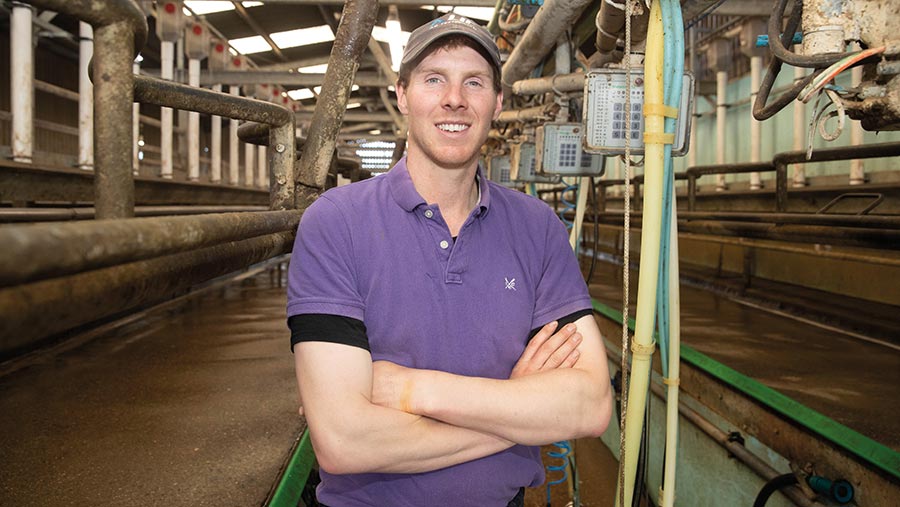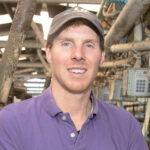Farmer Focus: Drought fix after 3.5p/litre forage spend
 © Tim Scrivener
© Tim Scrivener The irony of thawing parlour equipment soon after fitting parlour fans was not lost on me. We ordered the fans in the summer to improve the sweltering conditions during the record-breaking heat of July.
But now we find ourselves slipping down iced parlour steps.
The past year has been profitable for many in the dairy industry. It is easy to moan about something out of our control (global markets) rather than changing something where we do have control, such as costs.
See also: Heartbreak as 100 dairy cattle die within days on Jersey farm
Recent noises from Arla led to a discussion on seasonality and penalising spring milk further, encouraging more summer calving to manipulate milk supply.
I doubt many block calvers will chase the premium because of the added cost and complication of a longer winter feeding/housed period.
To manage the surplus of grass after balance day with a lower demand is also sacrilege.
As an organic supplier, we’ve been fortunate to supply a contract that has maintained a margin (albeit a shrunken one) over the conventional market.
Although profitable, the year has been hard work, with a dry summer adding multiple challenges.
Surprisingly, margin has remained on par with the spring budget, as the additional 3.5p/litre spent on purchased forage and valuation reduction from using carried-over silage stocks, has been balanced by increases in the milk price.
We will look to replenish silage stocks to a level where we can roll 1t dry matter (DM)/ha across the whole farm from balance day into surplus stocks.
For us, this equates to having about 1,500t of surplus silage storage as rollover annually to cover a drought year. I reckon we can expect one in every four years, based on recent experience.
In 2023, I think labour sourcing will continue to be challenging. Finding skilled individuals and retaining them will be even harder.
We have a had a great response from using herd software tags for heat detection and herd health, reducing the skill level required in the team and improving efficiency.
I still believe the answer lies in the next generation filling the gap.
We cannot undersell the fact that in the UK, dairy farming has fantastic potential for hard-working individuals to achieve very rewarding careers and the possibility of future farm ownership, with the right mindset and guidance.

